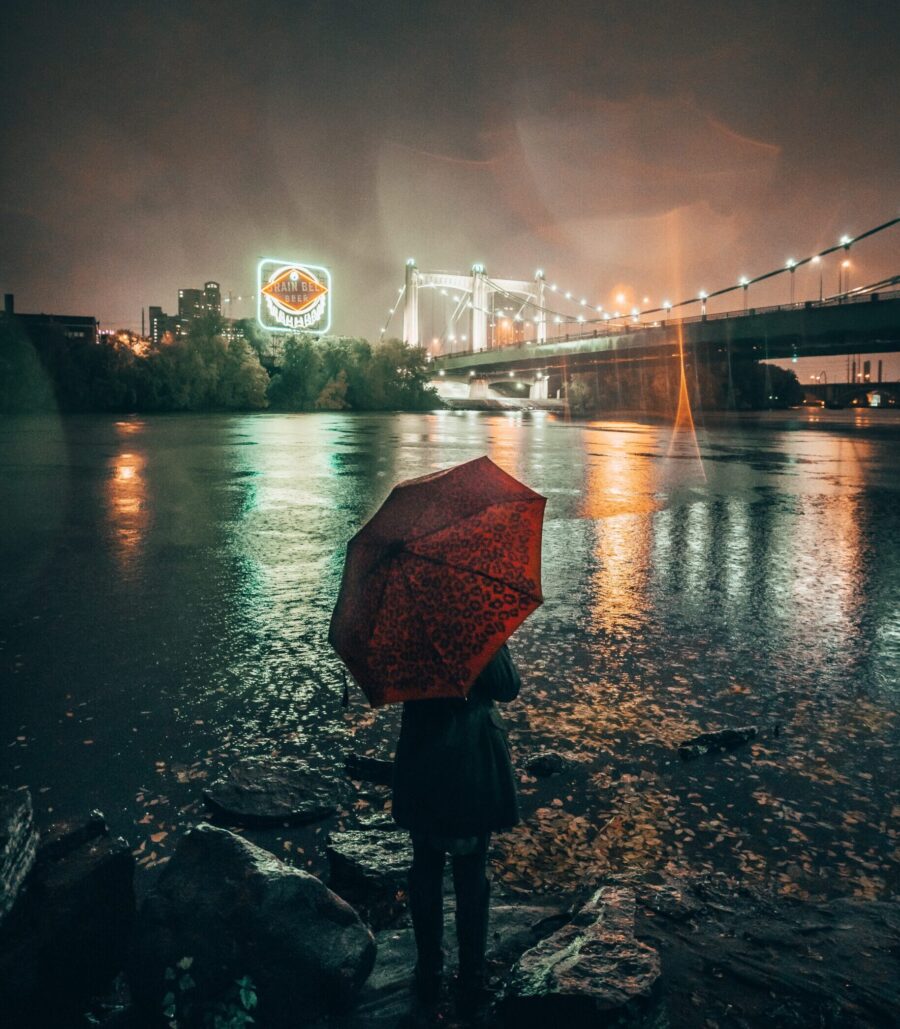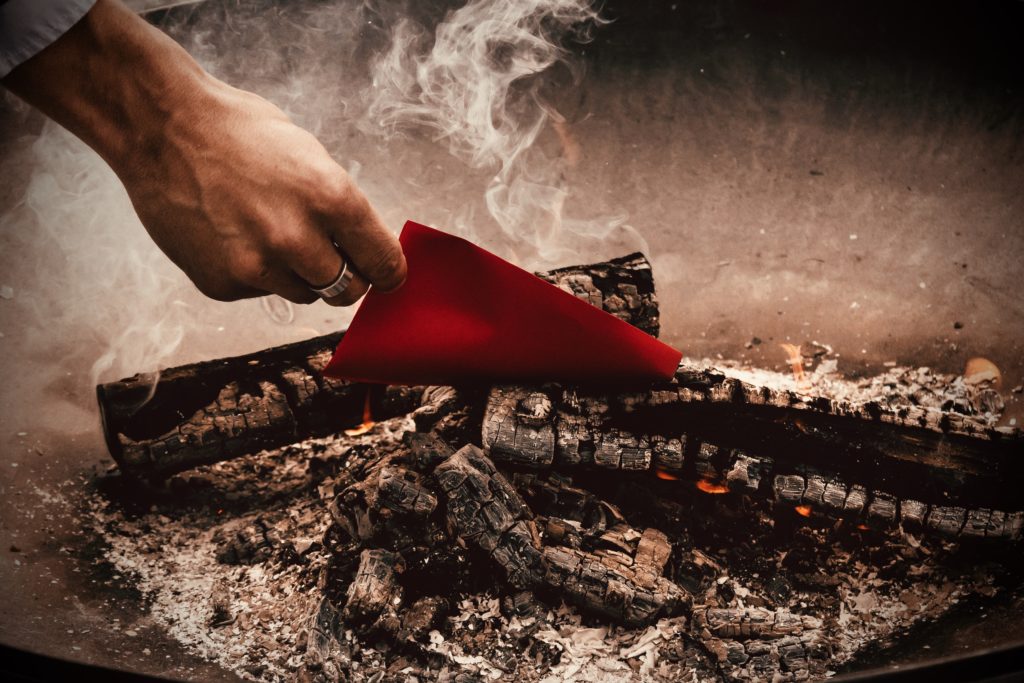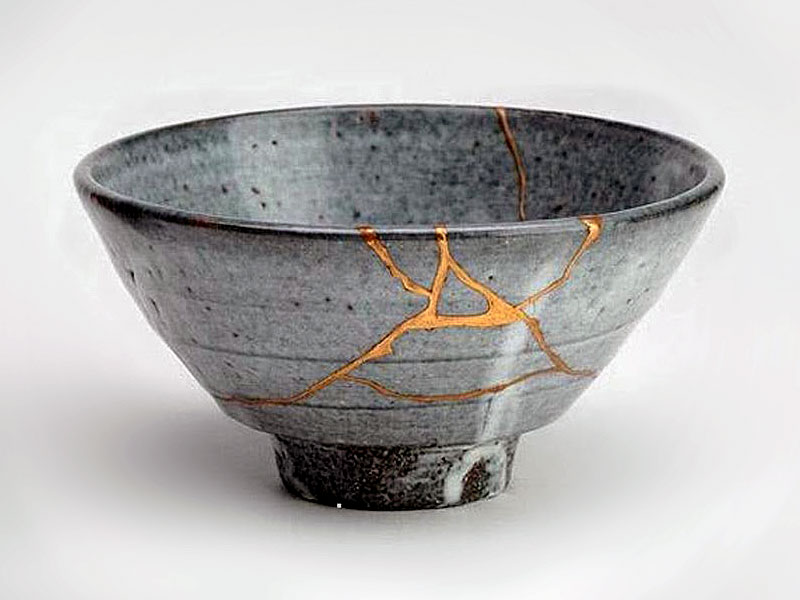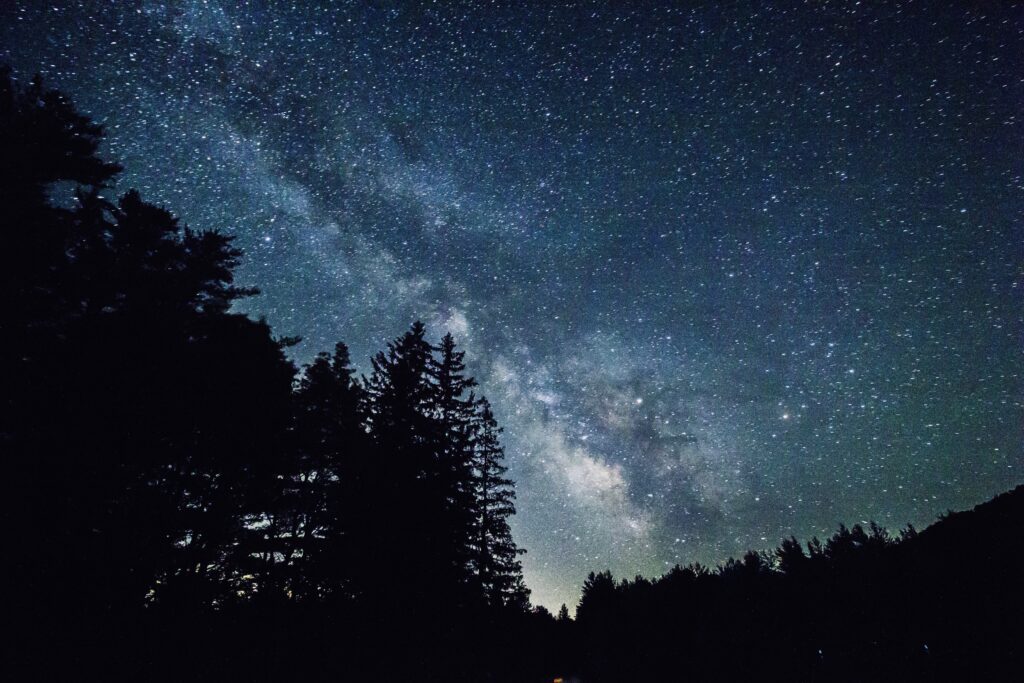As this past March came and went, I couldn’t believe we’d been in our home five years. In so many ways, it doesn’t seem possible—and lately I’ve found my mind wandering back to our “previous” life, the one with successful corporate careers and international vacations and no kids and “his and hers” video game consoles (yep, we were those people).
In that life we lived less than 10 minutes from downtown Minneapolis; we could see the skyscrapers from the end of our street. We played sand volleyball in the shadows of the city and met up with friends in overpriced coffee shops and ate at hole-in-the-wall restaurants with delicious food I couldn’t pronounce. We went to theaters and concerts and bars where Brian’s bands played live music amidst the confusing maze of one-ways.
Our faded yellow rambler was squeezed between two identical houses close enough to touch. We had a postage stamp-size lawn with a red swing in the front yard that hung from a silver maple twice as high as the house. We had lovely neighbors we’d talk to across fences and have a beer with in the street on humid evenings after mowing our lawns.
I never dreamed of growing old there, but neither did I imagine leaving. And so when I was recently asked if I missed living in the Cities, I was surprised by my quick but decidedly firm “no.”
*
Ten years ago my car sat idling on Highway 100 in my daily 60+ minute “rush” home from work.
That day I found out another fertility treatment had failed, I’d gotten a rejection call for a new job at a new company I had really wanted (and thought I’d get), and I’d been told by my current boss that unless big changes happened, I was sitting in a dead-end position. I had tried a lateral move within my company, and was rejected in that as well.
Brian was also looking for a way out, disillusioned and jaded by his industry’s lack of integrity and morality. We longed for change—for purpose, really—but couldn’t see past the crushing obligations and other roadblocks we ran into every time we tried a new thing.
I was trapped in so many ways, and I couldn’t see the next exit—and all the grief and anger and humiliation I’d dammed up surged into a river of rejection and desperation and despair. So with tears streaming down my face, I punched the steering wheel and screamed. Really loud. With ALL the windows down. And I railed at God—and the doors he kept slamming shut—at the top of my lungs as my fellow trapped motorists quickly rolled up their windows, awkwardly trying not to stare (and failing).
“I’M DROWNING,” I screamed. “AND WHERE ARE YOU, THE GOOD GOD WHO PROMISED THE RAGING WATERS WOULD NEVER OVERWHELM ME? WHERE—” (1)
But my words caught in my throat when I suddenly heard a firm but gentle voice cut through my yelling and tears: “Do you trust me?”
I whipped my head back and forth, startled by the proximity of it. I couldn’t tell if the voice was real or just in my head.
“Um, what?” I asked out loud.
“Do you trust me?” the voice gently asked again.
I sat completely still, knowing I was going crazy, yet daring—even hoping—I’d hear it again.
And as clear as if I’d been wearing headphones, I heard it a third time: “Do you trust me?”
There was no hallelujah chorus or bright ray of sunshine or descending dove or lightning bolt rending through the slogging traffic. But in that moment, I felt the raging river beginning to calm. I felt like I finally broke the surface for a huge gulp of air, and I knew. I knew to the core of my weary bones that the God I was railing at was trying to get my attention. My cries—honest if somewhat self-centered—had been heard in the heavenly courts. And with grace and compassion He pierced through my BS to the very heart of the matter.
“Yes,” I finally sobbed. “I do. I trust you.”
Then have patience, dear child, He whispered to my heart.
“For how long?” I could feel the panic creeping into my voice.
I have not forgotten you, and I will not forget you. Know that I love you.
“But how long do I have wait?”
Only the hum and buzz of city life answered me.
And yet.
A peace spilled over me. I stopped crying. Traffic started moving again.
And I knew, somehow, even if I couldn’t see it or plan it out, things would change.
*
I imagine that the sun was just starting to creep above the horizon on the Sea of Galilee, its rays not quite touching the little boat where Peter and a handful of other disciples tended to their fishing nets. After the tumultuous events of the last few weeks, there was comfort and escape in the rhythms of their old lives, lives that revolved around the small world of the sea, far away from political upheaval, crosses, and empty tombs. For Peter, it was the life before he denied knowing the man he thought had come to change the world.
They were probably sore and tired and grumpy after fishing all night—and having nothing to show for it—when the growing light showed a figure standing on the shore. They couldn’t make out who it was. But somehow this person knew they hadn’t caught anything, and he yelled out to them to cast their nets off the other side.
They had no reason to do what this stranger said. But I imagine Peter’s heart starting to beat faster, his mind beginning to race, as his fingers handled the wet, rough nets one last time like he did three years earlier.
And, like three years ago, the nets start slipping through his fingers, too heavy to hold the massive weight of fish suddenly filling it.
In those moments Peter knows.
And in true Peter fashion, he immediately jumps out of his boat and swims to shore to find Jesus, alive and well, standing there, breakfast ready. And as they sit in the sand by the warm fire and eat the bread and fish Jesus prepared, Jesus asks Peter if he loves him more than these things—these things that have sustained him, that he’s built his life and identify around.
Of course, says Peter instantly.
Then take care of my lambs, says Jesus, and in the next breath he asks again, Do you love me?
And again, Peter assures him he does.
Then shepherd my sheep, Jesus replies before asking a third time: Do you love me?
YOU KNOW EVERYTHING, the exasperated Peter says; YES. I LOVE YOU.
Then look after my sheep, says Jesus. (2)
And in those simple words, denial is exchanged for belief. Shame for redemption.
Sand and sea for cities and crowds. Fish for sheep. A job for a calling.
A way of life for the Way of Life.
*
On paper, our life in the city looked as expansive as the sea. But we were caught in the trap of working for a lifestyle, not a life. Somewhere along the way, we lost sight of God’s dream and replaced it with the American Dream. Like Peter, like so many of us, we returned to the nets of security and comfort we knew; we were fishing, but coming up empty.
But then a Voice calls out. And it pierces through our self-centered plans and dreams in a way that cuts ever-so-gently to our core.
You will seek Me and find Me, He says, When you seek Me with all Your heart. (3)
Peter left the sea. We left the city.
Five years after that day on Highway 100, we found ourselves walking up the snow-packed path with our six-month-old son into a new life in the Great Northwoods of Minnesota. We’d stumbled and fallen and somehow found ourselves in a mystery bigger and more important than ourselves. A mystery of seeking first His Kingdom and righteousness and trusting that somehow everything else we needed would be added unto us. (4)
Instead of rushing headlong after what we thought was important, we prayed. And waited. And prayed and waited some more. Sometimes patiently, sometimes unwillingly. But we took each step—big or small—as it came. We emptied our hands and minds of the material things we used to define our worth and status and security. And we filled our mind and hearts with the words and promises and love of the One who delights over us and knows every hair on our head. (5)
In the shadow of the cross, we exchanged rush hour traffic for wandering the woods; leading teams and committees and meetings for chasing two crazy, adorable boys; climbing corporate ladders for washing dirty little feet.
And in the exchange, He transformed us. He gave us new life and purpose and vision to do the good works He had planned for us to do. (6)
My world looks smaller these days, yet it’s infinitely bigger. What felt like death to give up gained us infinitely more than I ever dared dream.
But this is the way of the Kingdom. Mystery and paradox and exchange and transformation.
It’s the exchange of a way of life for the Way of Life—who transforms pain into purpose, fishermen into fishers of men, barren women into mothers.
And so we pray, with empty hands and all our hearts, Your Kingdom come, Your will be done. (7)
***
1. Isaiah 43:2
2. John 21
3. Jeremiah 29:13
4. Matthew 6:33
5. Zephaniah 3:17; Luke 12:7
6. Ephesians 2:2, 10
7. Matthew 6:9



